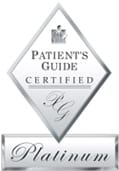

Nail fungus, or onychomycosis, is a condition that can affect your toenails and fingernails. As you age, you are more likely to develop this fungal infection, and heredity also plays a role in your chances of having the condition. At the onset, nail fungus may only affect a small part of your nail, but the fungus can quickly spread to the rest of your nail. Left untreated, the nail can be permanently damaged, and people with certain medical conditions, such as diabetes, or who are on certain medications, can develop infections in other parts of their bodies.
The tiny organisms that cause nail fungus thrive in moist, warm places and do not need sunlight to survive. You may come in contact with these organisms in public places, such as swimming pools, public showers and hotel rooms. They enter your skin through tiny openings, such as small cuts or an opening between your nail bed and nail. You are at greater risk if your feet and hands are constantly exposed to warmth and moisture.

One of the earliest signs of nail fungus appears on the underside of the tip of your nail as a white or yellow spot. As the condition progresses, your nails may become thick, brittle and dull. The nail shape may become irregular, and you may notice a dark color that is caused by dirt and other contaminants collecting under your nail.
Laser technologies are used in numerous medical applications because they are safe, effective, and result in little to no discomfort. The PinPointe™ Footlaser is specially designed to target only the pathogens that cause your nail fungus without damaging the surrounding tissue. You will have no downtime after your NYC nail fungus treatment, and you can even wear shoes immediately after the session.
For most patients, one treatment is all that is needed. The fungus is completely swept away during the procedure, but you should take precautions to ensure that your nails do not develop new fungal infections.

The best way to prevent toenail fungus is to protect your feet from infection. The fungus is able to find its way into small cuts and openings between your nail and nail bed. Proper hygiene and keeping your feet dry will minimize your risk for toenail fungus. When you are in public places, such as swimming pools, showers, gyms and hotel rooms, always cover your feet with sandals or some other type of shoe. Proper nail care also means getting a professional manicure and pedicure on a regular basis.
All told, these steps will help diminish the chance of getting a fungal infection:
Nail fungus treatment in NJ can vary in price, primarily depending upon the needs of the patient. To help our patients, our office accepts CareCredit® and Alphaeon™ Credit—two premier medical financing options. To learn more, please speak with our concierge team.
Helmed by world-renowned dermatologist Dr. David Goldberg, our practice brings a boutique, personalized experience to every patient. In addition to the full array of medical dermatological procedures, we are also known for our artistry in cosmetic dermatology, with a host of rejuvenating options including lasers, injectables, and non-surgical body contouring. When you come to Skin Laser & Surgery Specialists, you will find our concierge team dedicated to make your treatment as enjoyable as possible—not just your results, but also in every aspect of your experience.

When you come to our office for your initial consultation, our board-certified dermatologists will discuss all aspects of nail fungus treatment in NJ. We will perform a thorough examination to determine your best treatment options, and move forward once you and your dermatologist are in harmony. Please call our office to schedule your consultation.
All Rights Reserved. Web Design & Internet Marketing by Studio III
The health and safety of our patients and staff is our top priority. Our in-office safety policies are aligned with the latest guidelines issued by the CDC and local government officials related to COVID-19.
New safety policies for patients:
New safety policies for office & staff: